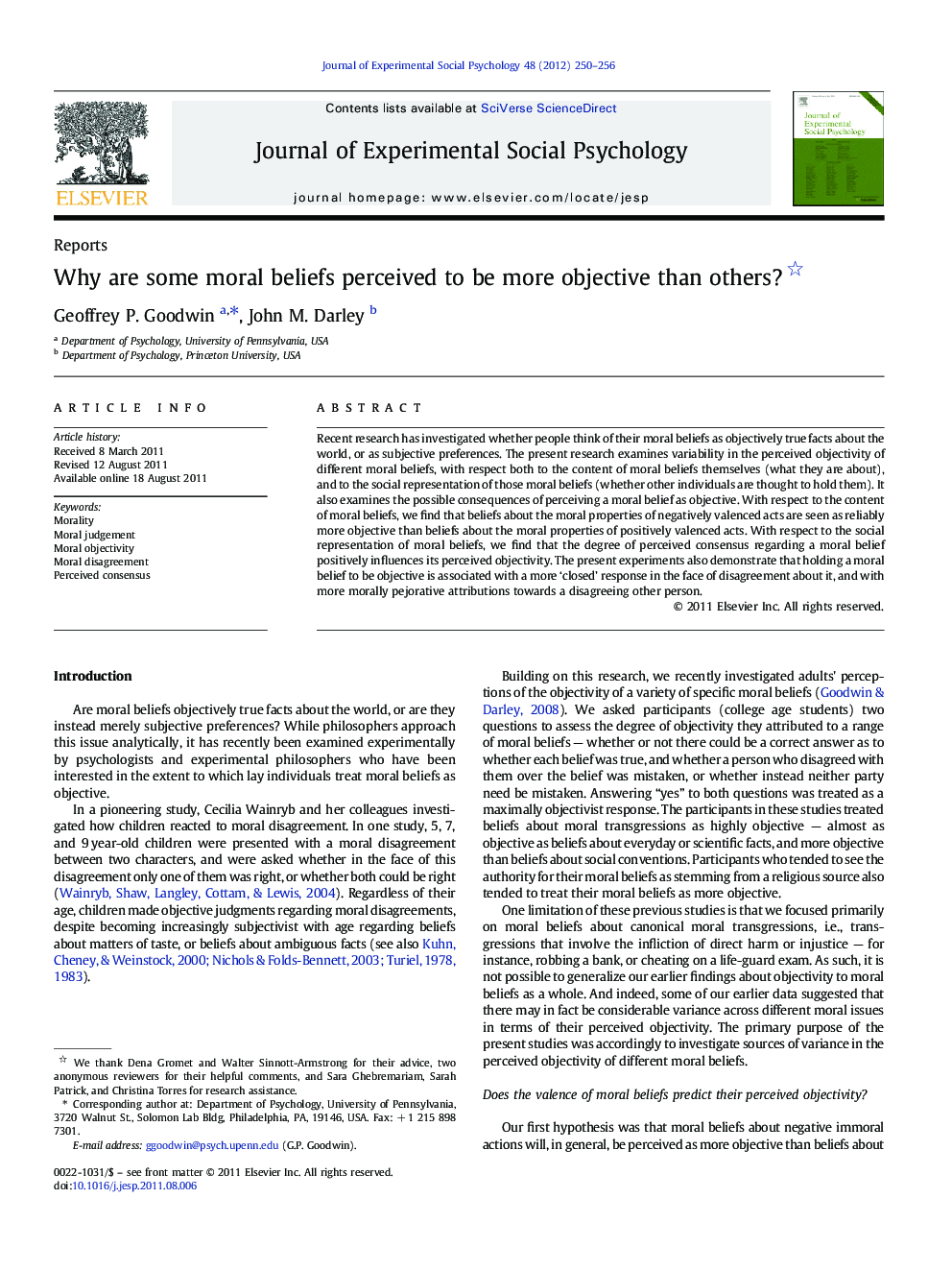| Article ID | Journal | Published Year | Pages | File Type |
|---|---|---|---|---|
| 948228 | Journal of Experimental Social Psychology | 2012 | 7 Pages |
Recent research has investigated whether people think of their moral beliefs as objectively true facts about the world, or as subjective preferences. The present research examines variability in the perceived objectivity of different moral beliefs, with respect both to the content of moral beliefs themselves (what they are about), and to the social representation of those moral beliefs (whether other individuals are thought to hold them). It also examines the possible consequences of perceiving a moral belief as objective. With respect to the content of moral beliefs, we find that beliefs about the moral properties of negatively valenced acts are seen as reliably more objective than beliefs about the moral properties of positively valenced acts. With respect to the social representation of moral beliefs, we find that the degree of perceived consensus regarding a moral belief positively influences its perceived objectivity. The present experiments also demonstrate that holding a moral belief to be objective is associated with a more ‘closed’ response in the face of disagreement about it, and with more morally pejorative attributions towards a disagreeing other person.
► Different moral beliefs differ in their perceived objectivity. ► Beliefs about negative immoral actions more objective than beliefs about positive moral actions. ► Perceived consensus positively correlated with perceived objectivity. ► Experimental manipulation of perceived consensus increases perceived objectivity. ► Objectivity associated with more closed responses to moral disagreement.
